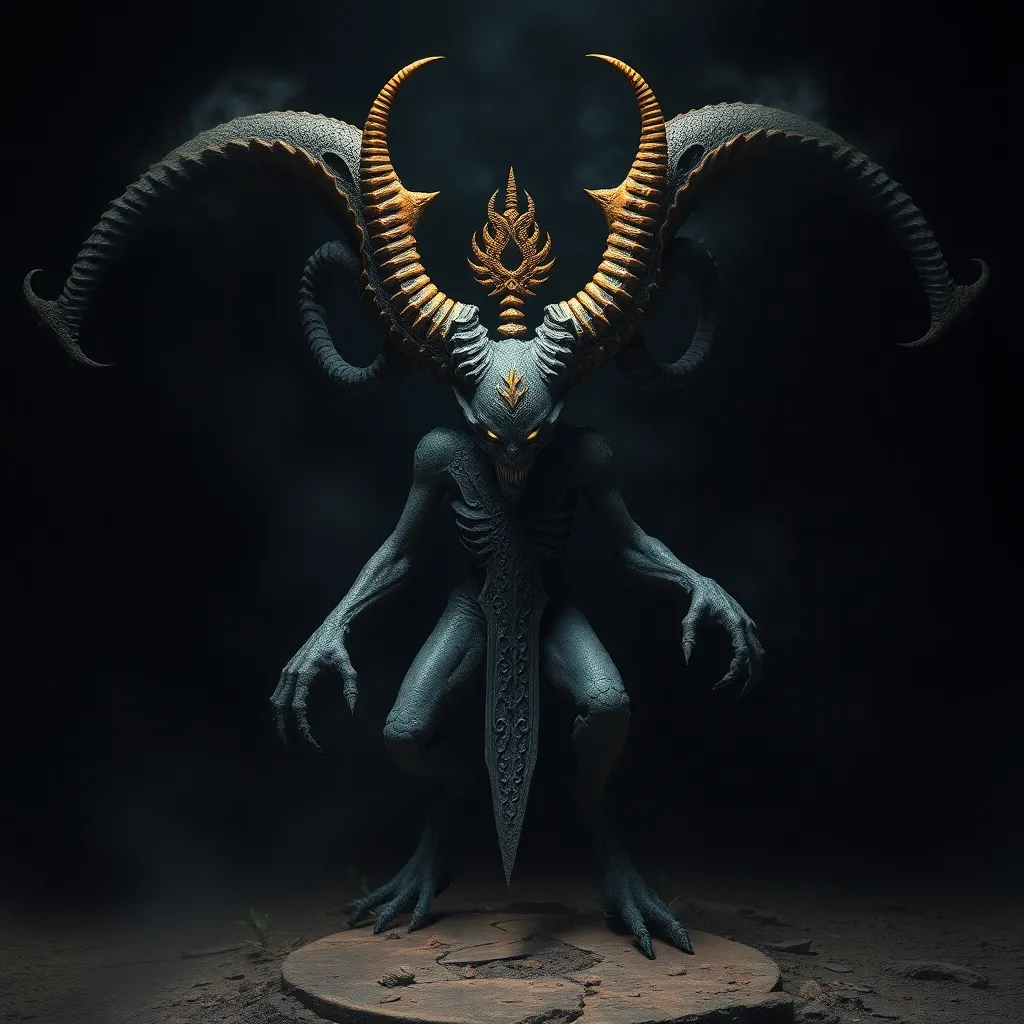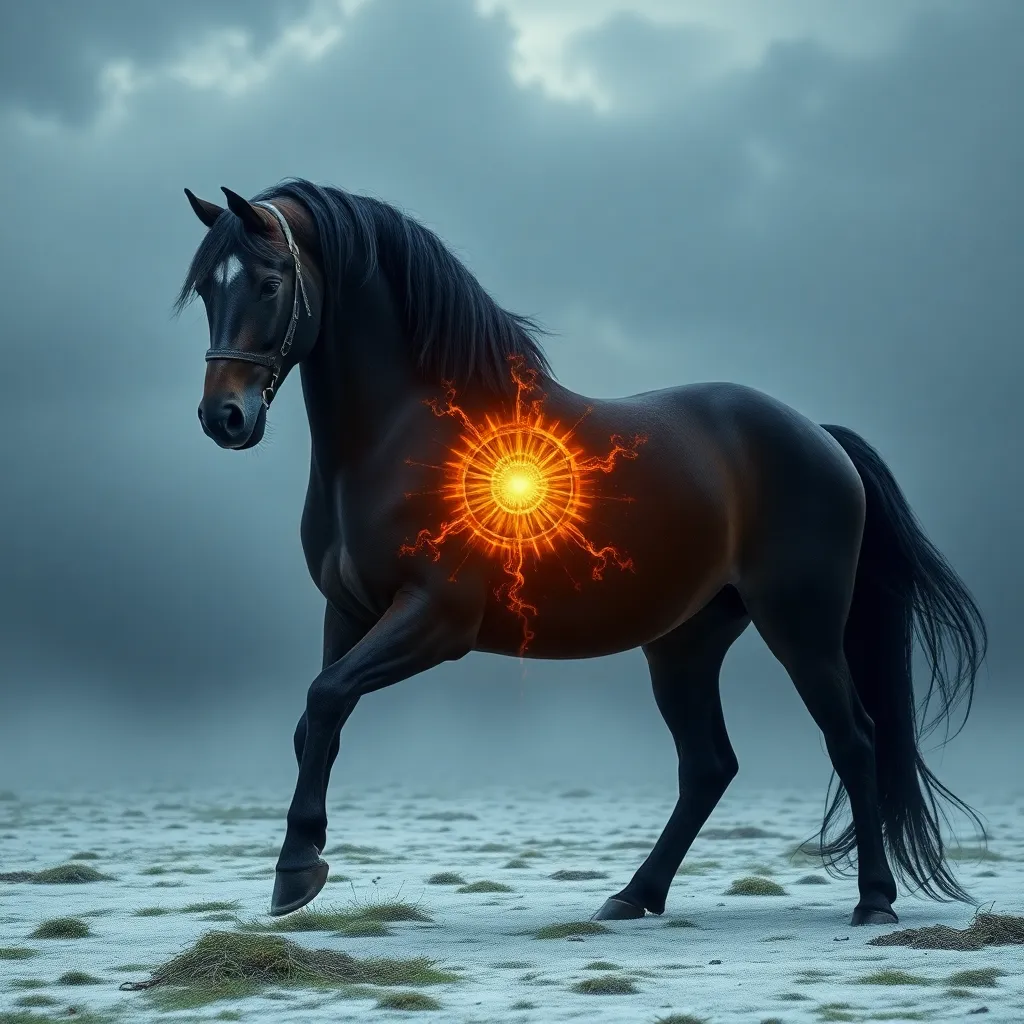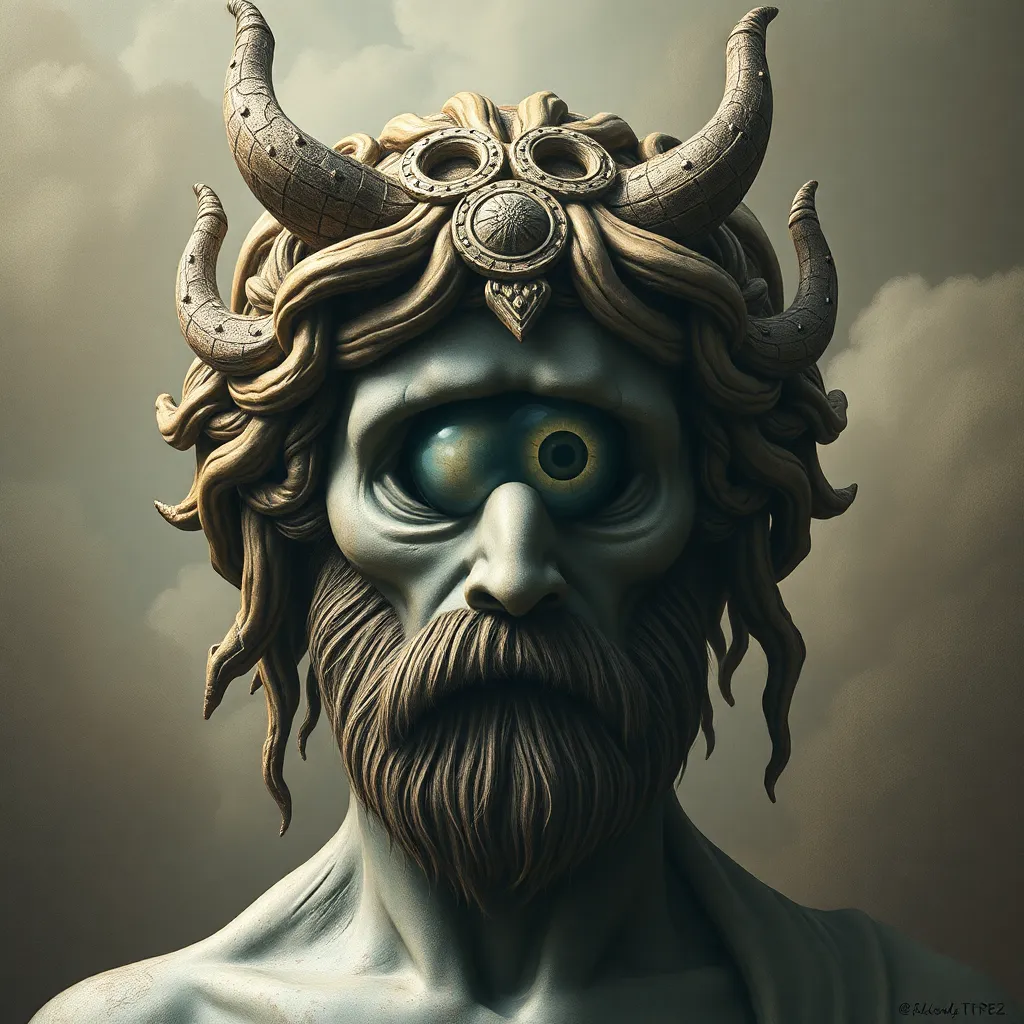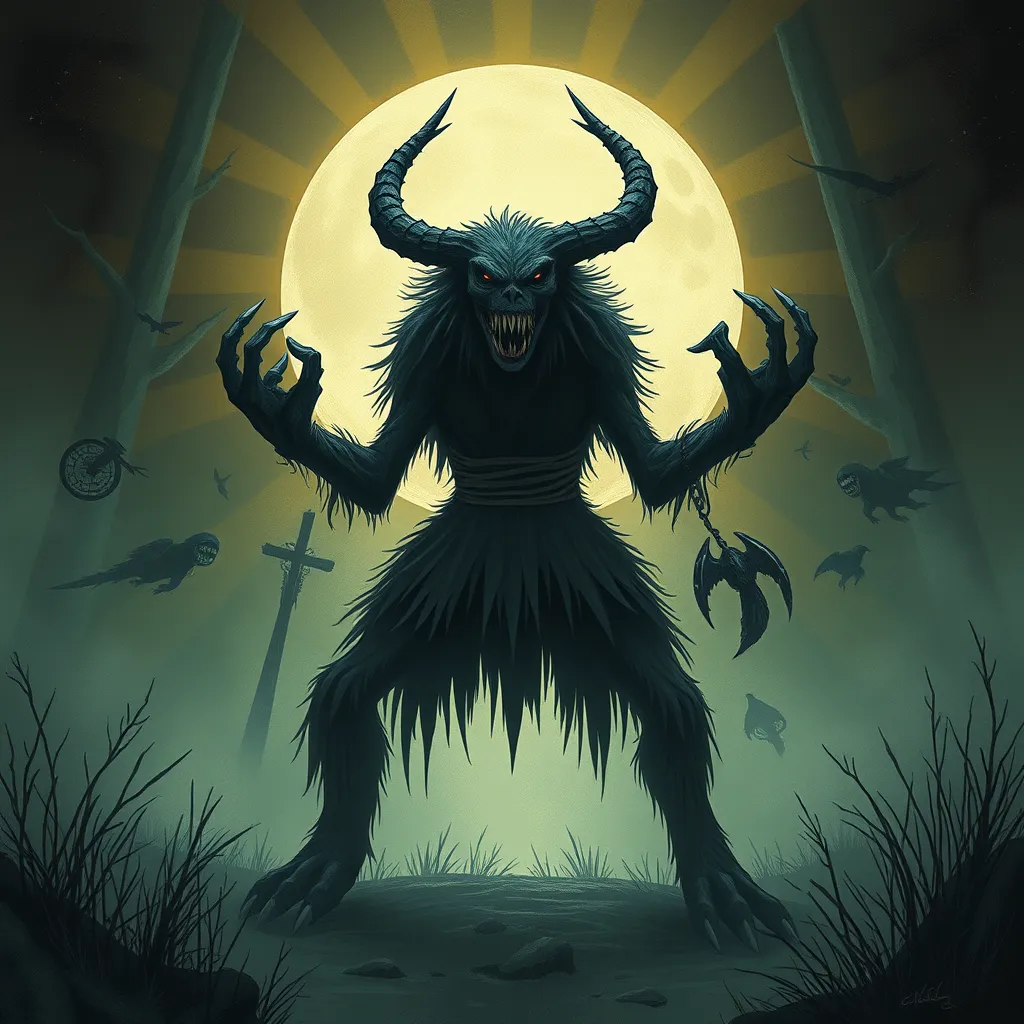Empusa’s Echoes in African Mythologies: Exploring the Demon’s Influence in African Cultures
I. Introduction
Empusa is a figure rooted in ancient Greek mythology, often depicted as a seductive demon who preys on young men. As a shapeshifter, Empusa embodies the fears and desires of humanity, representing the darker aspects of the psyche. In contrast, African cultures are rich with diverse belief systems that often incorporate demons as integral components of their spiritual landscapes.
This article aims to explore the influence of Empusa across various African mythologies, highlighting the significance of demons in these cultures and drawing connections between the characteristics of Empusa and similar entities found in Africa.
II. Understanding Empusa: A Historical Context
The origins of Empusa can be traced back to the works of ancient Greek playwrights, particularly in the writings of Euripides. Empusa is often portrayed as a servant of the goddess Hecate, with the ability to change form and deceive her victims. This shapeshifting quality allows her to embody both attraction and repulsion, making her a complex figure in mythology.
When comparing Empusa to similar demonic figures globally, one can find parallels in various mythologies, such as the succubus in European folklore or the aswang in Philippine culture. These figures often share traits of seduction and danger, reflecting common themes of fear and desire.
As cultures intertwine, the characteristics of Empusa have transitioned into African narratives, influenced by historical interactions such as trade and colonization. The blending of these mythologies has led to the emergence of new interpretations and adaptations of Empusa-like figures in African storytelling.
III. The Role of Demons in African Mythologies
In African spiritual beliefs, demons play a significant role, often serving as intermediaries between the physical and spiritual worlds. They are viewed as powerful beings that can influence human affairs, embodying both good and evil.
- Types of Demons: Across different African cultures, demons are categorized into various types, including:
- Trickster spirits that challenge social norms.
- Protective spirits that guard communities against malevolent forces.
- Vengeful spirits that seek retribution for wrongdoings.
- Duality of Demons: Many African cultures view demons as having dual roles, embodying both malevolence and benevolence. This duality reflects the complexities of human experiences and societal issues.
IV. Cross-Cultural Connections: Empusa and African Demonology
Identifying parallels between Empusa and African demons unveils fascinating connections in mythology. For instance, many African demons exhibit traits of seduction and manipulation, akin to Empusa’s characteristics.
Case studies from specific African cultures highlight the presence of Empusa-like entities:
- The Asanbosam: Found in West African folklore, this demon is known for its seductive nature and ability to ensnare its victims.
- The Mami Wata: A water spirit in various African cultures, often depicted as a beautiful woman who can be both nurturing and dangerous.
The amalgamation of Greek and African mythologies can be traced through historical interactions, particularly during periods of colonization and trade. Such exchanges have allowed for the blending of narratives, leading to unique interpretations of demonology in Africa.
V. Empusa’s Influence on African Folklore and Storytelling
Folktales are a rich medium for examining the influence of Empusa-like figures in African storytelling. These narratives often feature female demons who reflect societal fears and desires, paralleling the characteristics of Empusa.
The role of oral traditions is paramount in preserving and transforming these demon narratives, as stories are passed down through generations, often adapting to contemporary contexts. In recent years, contemporary retellings in literature and media have brought renewed interest to these themes, showcasing the enduring relevance of these mythological figures.
VI. The Symbolism of Empusa in African Art and Culture
In African art, demon figures are often depicted in various forms, symbolizing the complex relationship between humanity and the supernatural. The influence of Empusa can be seen in modern African artists who draw on these mythological themes to explore contemporary issues.
Rituals and performances that evoke the essence of Empusa are prevalent in many African cultures, serving as a means of connecting with the spiritual realm and addressing societal concerns. These cultural expressions allow communities to engage with their fears and hopes, reaffirming their identities.
VII. Psychological and Sociological Perspectives
The narratives surrounding demons, such as Empusa, profoundly impact community beliefs and fears. They serve as reflections of societal issues, illustrating the complexities of human experiences, such as love, betrayal, and morality.
Empusa’s representation in African mythologies often mirrors societal anxieties, highlighting themes of gender, power, and the human condition. The role of demons in cultural identity and cohesion cannot be understated, as they provide a framework for understanding and narrating shared experiences.
VIII. Conclusion
In summary, the exploration of Empusa’s influence in African mythologies reveals the interconnectedness of cultural narratives and the significance of demons in various belief systems. Understanding these cross-cultural influences is crucial for appreciating the richness of African folklore and its global context.
Future research directions may focus on the continued relevance of these narratives in contemporary society, examining how they evolve and adapt to modern challenges while remaining rooted in tradition.



